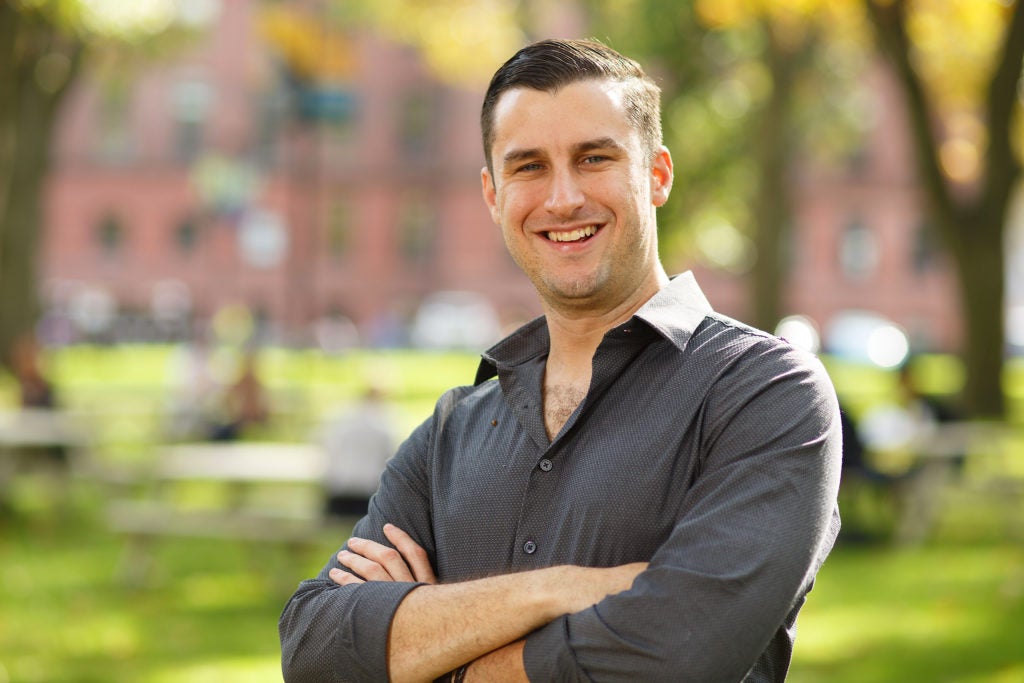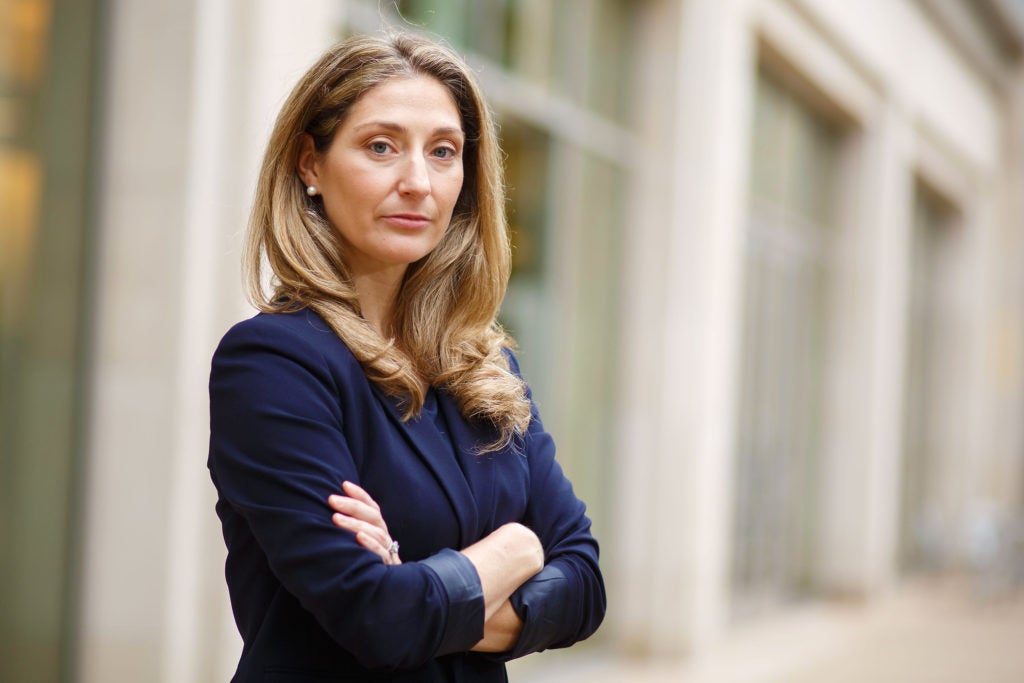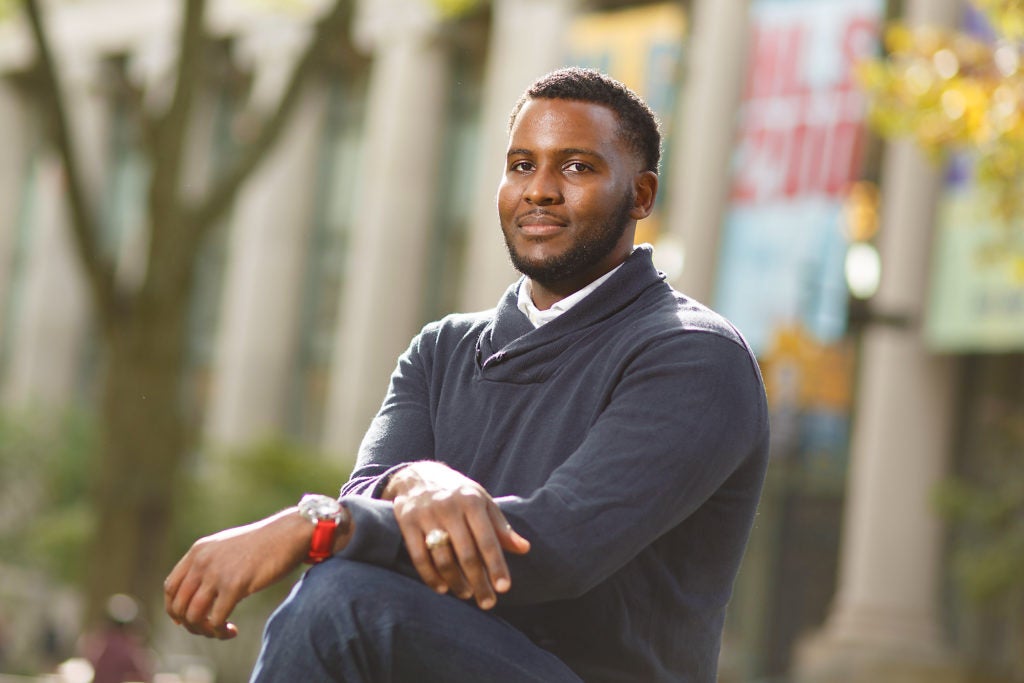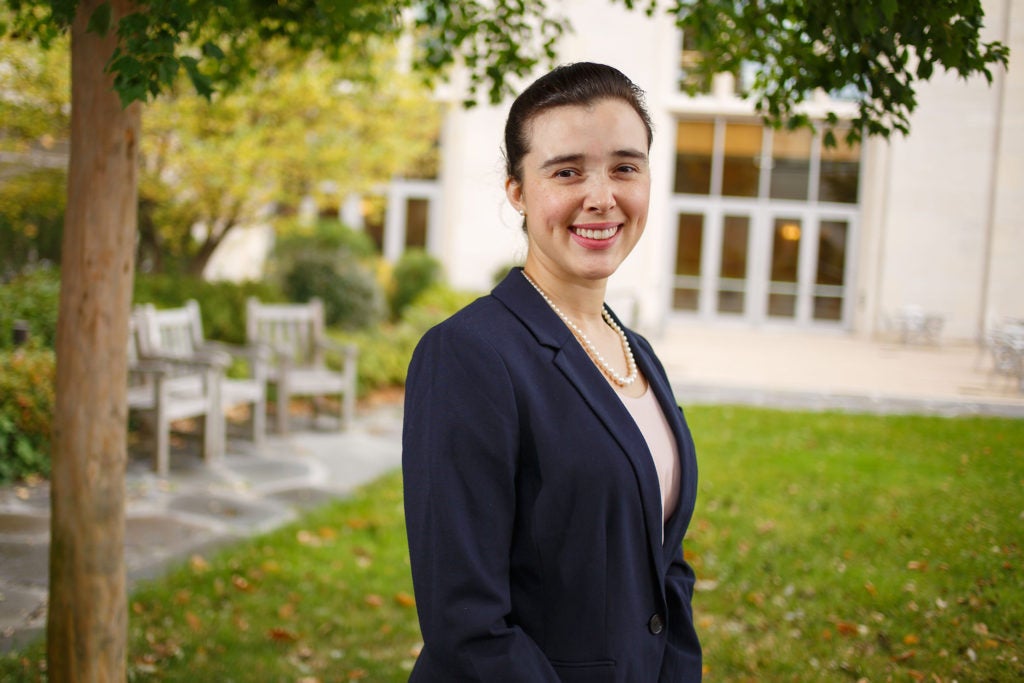Each year, as we honor military veterans nationwide for their service, Harvard Law Today profiles students in the incoming class who have held positions in the Armed Forces.
The Class of 2020 includes the largest number of former or current service members in Harvard Law’s recent history. Among this year’s class of 1Ls, at least 13 served or are still serving in the U.S. military. These students hail from both the officer and enlisted ranks of the U.S. Army, Marines, Navy, and Air Force. They represent a broad diversity of military experiences and include a Navy SEAL officer, a Marine infantry squad leader, an Army mechanic, a Navy nuclear prototype engineering officer, a Marine logistics company commander, and an Air Force pilot. In this year’s LL.M. class, there are two students who currently hold positions in the Armed Forces.
Many of these students benefit from Post-9/11 GI Bill education benefits provided by the Department of Veterans Affairs, and from Harvard Law’s participation in the Yellow Ribbon Program. The tuition at most law schools exceeds the amount covered by the base GI Bill scholarship. However, under the Yellow Ribbon Program, Harvard provides veterans additional funding that the VA matches dollar-for-dollar, in order to cover the full cost of tuition.
Below are just a few of those who make up Harvard Law’s vibrant community of current and former service members, represented by the Armed Forces Association.
Steve Kerns ’20, U.S. Army
“When blood is cheap, then perpetual war is easy, and if that’s the case, then who or what are we serving for?”

Steven Kerns ’20 was a high school dropout, a self-described ‘rebel without a cause’ from Long Beach, Calif., when he joined the U.S. Army as a teenager looking for adventure, with vague notions of changing the world. As soon as he deployed to Afghanistan and entered the war zone in May 2007, his romanticism was knocked out of him.
As a soldier with the 173rd Airborne Brigade Combat Team—Kerns chose to become a paratrooper to overcome his fear of heights—he was assigned to the notoriously dangerous Kunar and Nuristan provinces. On Nov. 9, 2007, two squads out on foot patrol were caught in a vicious ambush and under assault by rocket-propelled grenades and small-arms fire. Then Kerns’ base came under brutal attack, forcing Kerns and his fellow soldiers to fight for their lives.
Jenna Reed, LL.M. ’18, U.S. Marine Corps
“What really makes the difference when working one of these complex and potentially sensitive cases is your leadership, and I’ve been blessed to have had some of the best leaders the Marine Corps has to offer.”

Child pornography, premeditated murder, high-profile cases of recruit abuse by drill instructors, drug distribution rings, cybercrimes. As a JAG officer in the U.S. Marine Corps for more than six years, Jenna E. Reed LL.M. ’18 prosecuted and defended some of the most serious cases in that branch of the military, focusing on violent and special victims crimes, including shaken-baby cases and others involving children.
At the regional defense office at Marine Corps Base Camp Lejeune, in North Carolina, Reed, who joined the Marine Corps in 2010 after graduating from Villanova University law school, defended more than 34 federal criminal cases, landing a number of acquittals through her tireless and imaginative lawyering, according to her commanding officers. While eight-and-a-half months pregnant with her son Barrett, now 21 months old, Reed traveled to the West Coast to defend a Marine charged with the murder of his own child; all federal charges against him were dismissed.
So exceptional a lawyer was Reed that in 2016 she was chosen from among 120 of her peers as Defense Counsel of the Year for the entire Marine Corps. “Simply put, Captain Reed has established herself as the premier litigator within Marine Corps Defense Services Organization,” her commanding officer wrote. “Her personal sacrifice and dedication to clients is second to none.”
Nathan Jester, ’20, U.S. Marine Corps
“It was interesting to see how the Marine Corps teaches values like honor and courage, and tries to get young people to live those values.”

When Nathan Garrett Jester ’20 was a teenager in Atlanta, he informed his parents that he was set on enlisting in the Marine Corps and had already met with a recruiter.
“My dad said, ‘It’s your decision,’” Jester recalls, “but then he told me about this place called the [U.S.] Naval Academy. I’d never heard of it. He said that the entire time he was in the Marines—he served in Vietnam—he never saw a black officer. He said, ‘It’d be amazing for you to go to the Naval Academy and go out into the Marines and be the thing I never saw or even thought was possible in the Marine Corps.’”
Isabel Marin ’20, U.S. Marine Corps
“It built a lot of confidence in me, that my leadership as a woman was supported and trusted. I’ll always carry that with me.”

Ever since she was little girl growing up in Washington, D.C., Isabel Marin ’20 has wanted to be a lawyer. But between graduating from Yale in 2012 and entering law school this year, Marin had an important goal: to serve as an officer in the U.S. Marine Corps.
“I’d really recommend it to anyone,” says Marin, who deployed to Afghanistan and Kuwait during her four years of service. “I had a very positive experience, with great leaders, great battalion commanders and executive and operations officers that put a lot of trust in their lieutenants and helped us grow as leaders. It built confidence and gave me significant leadership experience.”
Even though she was one of the few—and often the only—women in her platoon, where she was platoon commander, she says she never encountered problems either with the men she led or those to whom she answered. “It felt really important to know that male battalion commanders put their trust in me. It built a lot of confidence in me, that my leadership as a woman was supported and trusted,” she says. “I’ll always carry that with me.”
